Review: Kodak Prosper 1000 Press
Kodak launched the Prosper press platform during Ipex in 2010 and since then has delivered, what Kodak calls its concept of customisation to reach a “market of one” with offset class output, fast speeds and low cost of operation.
24 Feb 2013 | By Noel D'Cunha
This family of Kodak Prosper products include the Kodak Prosper 1000 Press among others. The Prosper 1000 Press, the monochrome high-speed inkjet press is targeted at producing books and direct mail.
According to Kodak, the Prosper 1000 Press uses the revolutionary Stream inkjet technology to deliver quality, productivity and lower total cost of operations for run lengths under 7,000 copies. “The Kodak Stream inkjet technology is designed to increase print quality and durability, and has the ability to print on uncoated substrates,” says Ramani Viswanathan, vice president - digital print solutions, commercial imaging.
The Prosper 1000 Press is a compact monochrome press that offers perfecting with a print width of up to 24.5 inches (62.2 cm) at speeds up to 650 feet per minute (200 mpm). It is one of the most cost-effective inkjet web press available today for 8, 12 and 16 page signatures, with a duty cycle of 90 million A4 or US letter pages a month. “It offers one-over-one perfecting,” says Ramani adding that “its perfect for those printers who are looking for a strategy of digital without compromising of operational costs as well, the likes of waste, inks and service charges.”
The Prosper 1000 also features an automated image quality management system, which is capable of printing quality that rivals offset output of up to 175lpi on a wide range of uncoated papers. “This innovative system is ideal for service providers in the trade, mass market paperback and educational segments that want to differentiate their offerings and drive increased profitability.”
Ideal foil for book-making
In addition to the Prosper 1000 Press, Kodak’s digital book solution includes integrated workflow and finishing options, enabling efficient book production that closely follows the demand curve, and helping minimize ordering costs, overproduction, inventory, returns, waste. Then there’s the KodakUnified Workflow Solutions, which offers a suite of tools that help printers more efficiently manage their book business from the enterprise level all the way through production and output processes.
Ramani sites an example. “With bookmaking, you need to control all the aspect of print, offset and digital presses as well as post-press. The sophistication in the workflow enables smooth production workflow, which automates complex tasks, reduces errors and streamlines production. In other words the adjustments can be made on the fly.”
Scalable solution
The prosper is a modular and scalable solution that can be upgraded to full colour in the field to meet the needs of higher education and professional segments, says Ramani. “What this means is that the Prosper 1000 is a perfect fit for any business; and it also gives the customer the flexibility to upgrade to the colour functionality of the Prosper 5000XL Press.” The Kodak Prosper 5000XL Press offers 4-over-4 perfected output at up to 3,600 A4 or letter pages per minute on uncoated papers.
Eco-friendly technology
In 2011, Kodak took home the honour of green equipment award for the Prosper 1000 Press at the China 2011 Green Awards. The Prosper 1000 received the award for its its impressive environmental attributes including water-based ink, long-lasting printhead, and print on-demand option.
While most print heads needs to be replaced, Kodak claims that its printheads can be refurbished. “It a maintenance asset,” says Ramani. “It offers rate of as high as 95% on re-use.”
Reducing environmental impact is slowly but steadily catching up with the Indian print industry. “Yes, printers are now looking for way to lessen their environmental impact and Kodak’s Prosper inkjet printing system serves as a great example for Kodak’s commitment to developing products with more sustainable solutions.” With the ability to print on-demand, publishers can reduce both waste and inventory levels associated with printing quantities that are too large. “With the Stream inkjet technology, the Prosper Press platform recycles up to 95% of this ink in a continuous loop,” says Ramani.
First-mover advantage
By investing in India’s first Prosper 1000 Press, Repro India has become an early adoptor of this technology. Repro, which had ordered the machine at Drupa 2012, recently announced the commissioning of the Prosper at its Navi Mumbai facility.
The machine started commercial printing early this month and is reported to be currently printing more than 1.8-million A4 print impressions per day. ”The new Prosper 1000 press will enable us to cater to the increasing demand from customers to produce shorter print runs ranging from 1–2,000,” said Rajeev Vohra, director at Repro India.
“Repro has been partnering with publishers the world over to help them realise the true value of the content they acquire from authors. Technological changes and the dynamic demand-supply scenario combined with a competitive environment have necessitated shorter lead times, multiple platform offerings and an extension into having a robust supply chain that a publisher can capitalise on. Repro's modern digital state-of-the art facility caters to the ever growing needs of the publishing industry,” said Jyotsna Chugh, associate vice president- marcom.
According to Kodak, its goal is to provide booking book printing solutions that deliver greater revenue opportunities and improved profit margins for printers and publishers worldwide. “It’s all about printing the right quantity at the right time at the right cost. Whether it’s one book or 100,000, Kodak has the right solution,” says Ramani.
With offset class output, minimal start-up waste, quick changeover and zero press makeready between jobs, and a workflow that is capable of seamlessly integrating offset, digital and post-press, the Prosper 1000 Press promises to deliver a book solution that can help deliver short-run digitally printed book more productively than ever before. “Until the Prosper came along, there was always some degree of compromise with digital print, either in print speed or cost per page. We have made our foray into the Indian book printing market and that’s a significant mark of confidence in the technology,” Ramani concludes.
Specifications
Speed 650 fpm (200mpm), up to 3600 A4 ppm, 8, 12, 16 page signatures
Resolution up to 175 lpi
Substrates Types: Uncoated free sheet, uncoated groundwood
Roll width 8 - 25.5inch (20.3 x 64.8 cm)


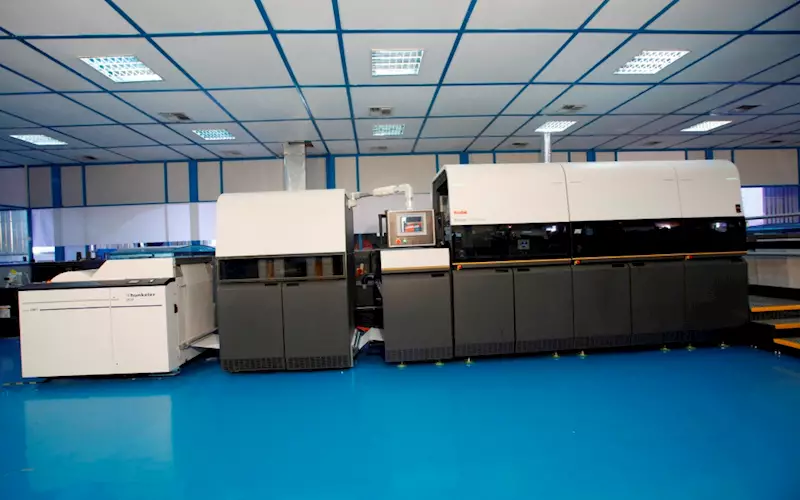
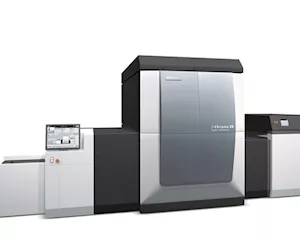
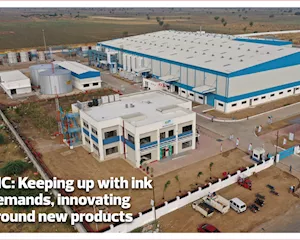
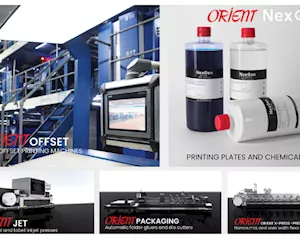
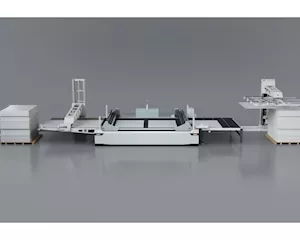
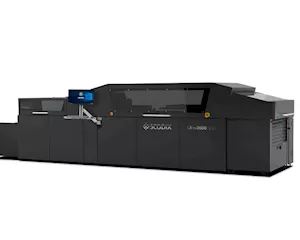






 See All
See All